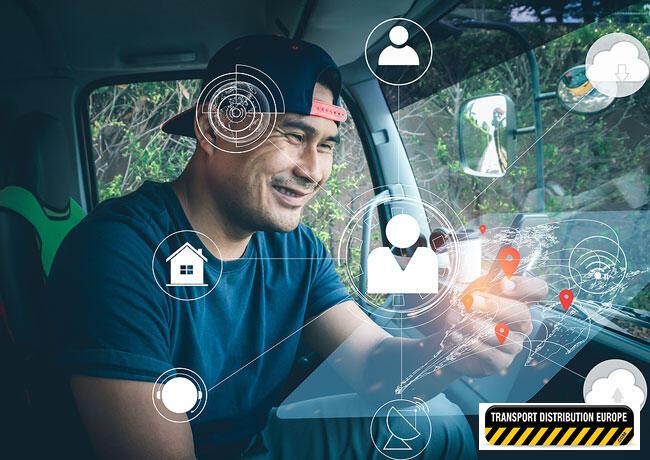Mobile technology will be critical to deliveries in just five years’ time, 77% of UK T&L leaders agree
Jul 20, 2021
Two-thirds (77%) of the UK’s transportation and logistics (T&L) leaders (71% globally), believe that mobile-first technology will be critical to deliveries in just five years’ time, new global research from mobile and IoT management solutions provider, SOTI, has found.
As the pace of technological change picks up, half (50%) of T&L leaders globally believe mobile-first technology will increase the speed of the delivery process, while a quarter (24%) said wearables will play a more important role during that time. A fifth (20%) even expect the use of drones to become significant.

As part of its Mobilising the Delivery Workforce: State of Mobility in Transportation and Logistics 2021 Report, SOTI commissioned researchers to interview 550 IT decision-makers in the T&L industry across eight countries (UK, U.S., Canada, Mexico, Germany, France, Sweden and Australia), to understand the trends and solutions that are driving the industry.
In the last 12 months, 75% of T&L leaders say their organisation has invested considerably in new technology, as they race to keep up with the competition. 80% agree that their organisation plans to invest considerably in new technology such as mobile devices, wearables and IoT devices and solutions in the next 18 months. Despite this, over half (57%) agree that legacy systems have prevented their organisation from sufficiently upscaling their operations during the COVID-19 pandemic. When explored further, however, the research revealed that 72% have failed to adequately integrate their systems and technology.
“Digital transformation is rapidly picking up speed and T&L leaders are all too aware of the need to stay ahead of the curve. In just five years, many expect mobile-first technology to be fundamental in driving a fast delivery process with emerging technologies such as wearables and drones also having an impact,” said Sarah Edge, Director of Sales, UK at SOTI.
Ultimately, this is causing employees at 98% of T&L companies globally to lose time within their normal working week having to deal with technical or system difficulties, delaying shipments. Ironically, 70% stated that reducing downtime of mobile devices in the field is a top concern for their business.
Edge continues, “Organisations have been investing heavily in new technology over the past year and plan to continue to do so, yet they are besieged with technological or system difficulties that hold them back. While over half agree that legacy systems have prevented their organisation from sufficiently upscaling during the pandemic, this isn’t the real problem.”
Further from Edge, “It’s just not practical or feasible from a cost perspective to rip out every piece of legacy technology and start again. Instead, effective integration of systems and a solid mobile strategy are key. Despite this, almost two-thirds (72%) admit they have failed to do so, which is having a knock-on impact on productivity. With an integrated mobile and IoT management platform however, T&L companies are not only able to improve their agility and respond to these issues, but also minimise costs and ensure transparency in the delivery channel.”
Report Methodology
Commissioned by SOTI, Arlington Research, an independent market research agency, conducted 550 interviews using an online methodology among IT Managers, IT Directors, Senior Management and C-Suite (all disciplines) working in the T&L vertical across eight countries. All respondents are aged 18 and over and work in companies with 50 or more global employees. Fieldwork was conducted from March 18 to 30, 2021. The 550 interviews were split across eight markets as follows: UK, US, Canada, Mexico, Germany, France, Sweden and Australia.
